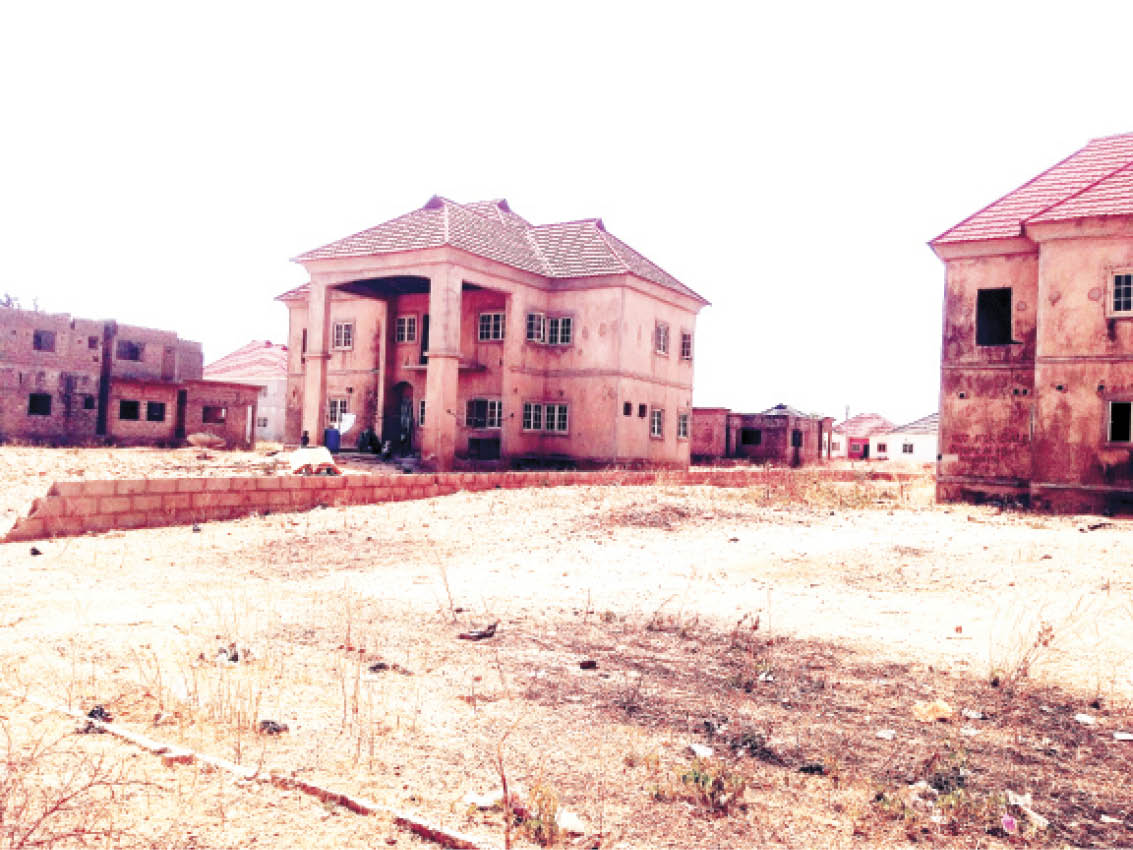Why Kano’s N45bn housing estates largely unoccupied
The Kano State government, under the immediate past administration, constructed three ‘mega cities’ within the state as part of its development plan for the metropolis. The mega cities named Kwankwasiyya, Amana and Bandirawo were erected on 191 hectares of land, and was said to have gulped N45 billion. Victimisation: We may go on strike again, […]

A section of abardoned houses at Bandirawo Housing Estate
The Kano State government, under the immediate past administration, constructed three ‘mega cities’ within the state as part of its development plan for the metropolis.
The mega cities named Kwankwasiyya, Amana and Bandirawo were erected on 191 hectares of land, and was said to have gulped N45 billion.
- Victimisation: We may go on strike again, ASUU warns
Despite N134bn allocation, senators, reps seek more funds
Daily Trust, however, gathered that after the completion of some of these projects, there was serious public outcry over the cost of the houses which many considered as exorbitant and beyond the reach of many people.
It was also gathered that despite the state government’s announcement of 15 percent discount on the prices, many people still insist that the cost is beyond the reach of average income earners.
Findings revealed that in 2015, the estates, which have housing units in two to four-bedroom flats were priced between N13 and N35 million, depending on the category.
It was based on the complaints over the price that in 2017, the state government under Dr Abdullahi Umar Ganduje signed a Memorandum of Understanding (MoU) with a private firm to provide 500 homes for civil servants in the state. The project was designed to provide “decent, affordable and good quality homes” for workers.
However, both projects seem to have been abandoned. Sources at the State Investment and Property Limited told our reporter that some of the houses have been sold to individuals and corporate bodies while some remain unsold.
A visit to the Bandirawo Housing Estate revealed that some of the houses that have been sold are being rented out to people without the knowledge of the owners. It was the same story at Amana Housing Estate and Kwankwasiyya Estate.
At the site of the 500 homes meant for civil servants, there were no occupants, though some of the houses are still under construction.
While commenting on the projects, an estate developer in the state, Alhaji Ibrahim Abdullahi Mana, expressed dismay over what he called a waste of taxpayers’ money without much consideration on the negative implications on the lives of the citizens. According to him, the state government should have considered the present economic status of the country as well as that of the state before embarking on what he termed as white elephant projects.
“It is quite disheartening to see such a huge investment wasted; this is a very huge source of revenue generation as well as a good source of return on investment to the government. In my opinion, these houses have to be completed and sold out,” he said.
A housing expert, Mubarak Ibrahim, lauded the housing estate projects, while noting that the only issue is the state government’s negligence over the huge investment it made on behalf of the citizens. He suggested that the government should auction the houses and use the money to revive other sectors of the state’s economy.
Attempts to reach out to officials of the Kano State Investment and Property Limited proved abortive but an official claimed that they were only a regulatory agency and not in a position to comment on the project’s sales or otherwise.
Daily Trust gathered that the issue is being handled by the sales and allocation committee headed by the state Senior Special Assistant (SSA) on Housing, Auwal Inuwa Diso. However, when the SSA was contacted, he told our reporter that he has been deployed to another sector and as such, he can’t say anything on the matter.
